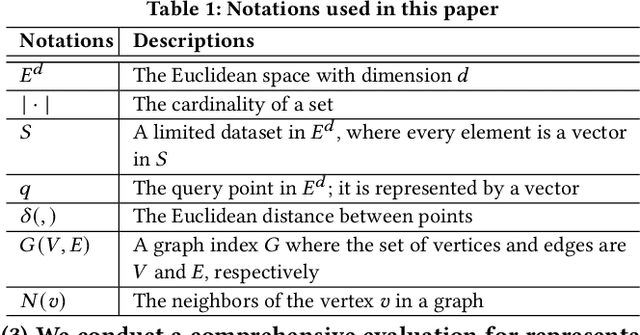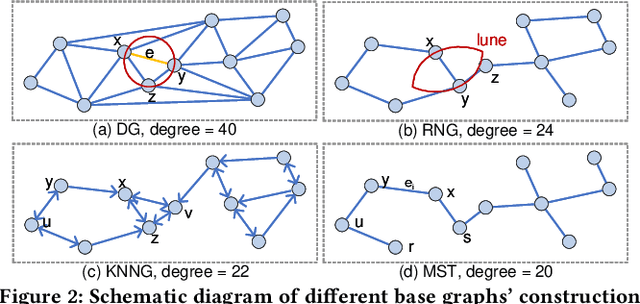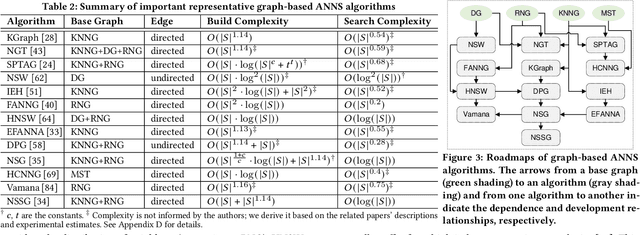A Comprehensive Survey and Experimental Comparison of Graph-Based Approximate Nearest Neighbor Search
Paper and Code
Jan 29, 2021



Approximate nearest neighbor search (ANNS) constitutes an important operation in a multitude of applications, including recommendation systems, information retrieval, and pattern recognition. In the past decade, graph-based ANNS algorithms have been the leading paradigm in this domain, with dozens of graph-based ANNS algorithms proposed. Such algorithms aim to provide effective, efficient solutions for retrieving the nearest neighbors for a given query. Nevertheless, these efforts focus on developing and optimizing algorithms with different approaches, so there is a real need for a comprehensive survey about the approaches' relative performance, strengths, and pitfalls. Thus here we provide a thorough comparative analysis and experimental evaluation of 13 representative graph-based ANNS algorithms via a new taxonomy and fine-grained pipeline. We compared each algorithm in a uniform test environment on eight real-world datasets and 12 synthetic datasets with varying sizes and characteristics. Our study yields novel discoveries, offerings several useful principles to improve algorithms. This effort also helped us pinpoint algorithms' working portions, along with rule-of-thumb recommendations about promising research directions and suitable algorithms for practitioners in different fields.
 Add to Chrome
Add to Chrome Add to Firefox
Add to Firefox Add to Edge
Add to Edge